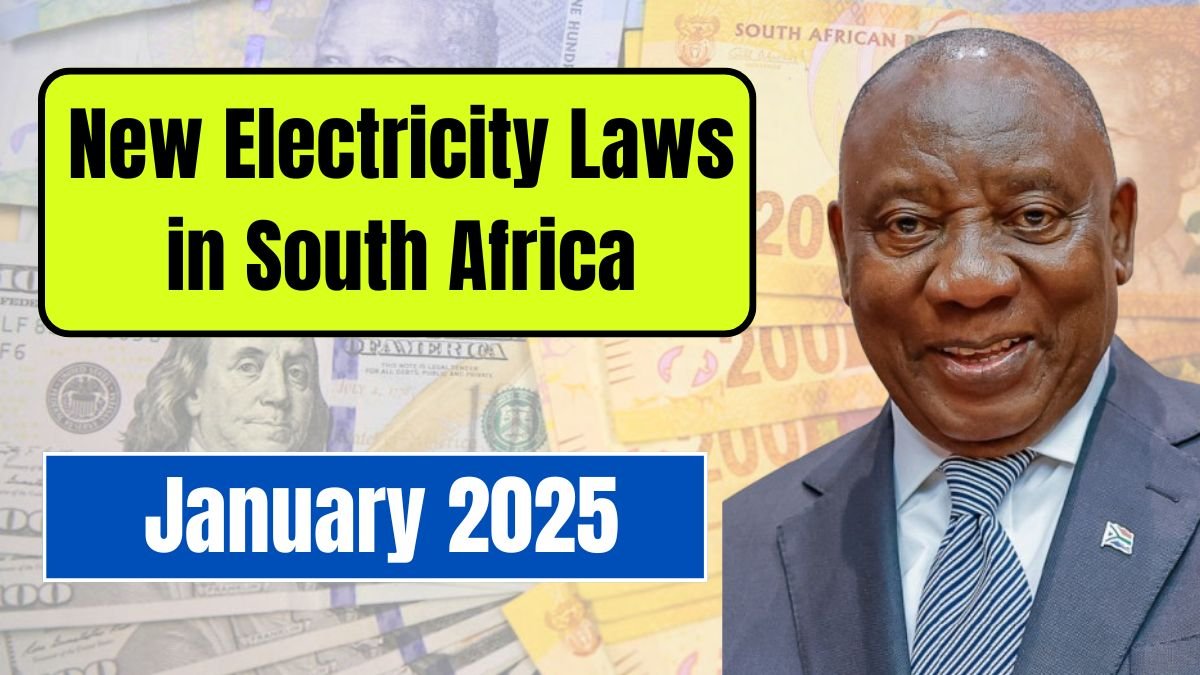South Africa’s government has been working tirelessly to overhaul the entire electricity sector of the country. The electricity regulations will start implementing in January 2025 and emphasize improving energy supply, increasing competition, and propelling renewable energy from the market. These are likely to influence the common man and enterprises, among other aspects of the energy landscape.
Significant Changes in the New Laws on Electricity
Private Sector Participation Has Increased
Such is the most striking feature of the new electricity laws-increased role of the private sector in the energy market. Currently here exists a near-monopoly by the state-owned power utility called Eskom when it comes to electricity generation and distribution. By enacting this new regulation, one would like to encourage independent power producers (IPP) to make contribution to the grid. Private companies are being clear finally with the possibility of generating power from a bunch of renewable sources, including solar, wind, and gas. This further diversifies the option available for the government so as to enhance, if little, dependency from Eskom, which has been under fire due to its aging infrastructure, mismanagement, and financial instability.
The new laws will allow IPPs to sell electricity directly to the businesses and households that want it, with little or no intervention from Eskom’s central grid. This is expected to create more competition in the energy market and will have an effect of reducing electricity prices in the long run. By bringing in market forces, it is desirable to make the electricity cheaper and more accessible to use for consumers.
Renewable Energy Expansion
At the heart of South Africa’s energy reform is the transition into renewable energy sources. The new laws governing electricity will now provide a concerted and clear framework for future investments in renewable energy projects. Predictions are that the country will improve its green energy capacity as renewable sources, for instance, wind and solar power, gets cheaper and cheaper.
Not only that, but its activities would also promote easier application for solar energy investment by the individual and through business establishments. The intent of the government under this legislation is to simplify procedures to install solar panels as well as small-scale renewable energy projects. That will spell magic for both urban and rural consumption, wherein households and businesses may choose to generate their own power, reducing reliance on Eskom and load shedding impacts.
Decentralized Power Supply
The new laws will make room for decentralization in the South African energy system. Communities, cooperatives, and even large businesses will find it easier to generate as well as store their own electricity. In addition, this decentralization may reduce long-distance power transmission, which mostly leads to faults and inefficiencies. Besides thus localized energy solutions enhance the resilience of power supply by making areas less vulnerable to national grid failures.
Regulatory Oversights and Consumer Forms
The new legislation titrated consumer protection and regulatory oversight, even as private involvement grew. The National Energy Regulator of South Africa (NERSA) is expected to take up its more crucial role in monitoring new entrants into the market to ensure that their prices are fair, service delivery is efficient, and that consumers are not exploited. It will further regulate tariffs for those who produce their own electricity to ensure that businesses and households don’t face unreasonably high costs.
Effects on Load Shedding
New electricity laws now abound with the source of their most expected outcomes-bearing load shedding and power outages. Theoretically, the government has schemed to ease the load on Eskom by increasing electricity supply from the renewable sources by the independent power producers (IPPs) and decentralized systems. This is expected to shorten and reduce the actual time spent under what is called load shedding and generally improve the reliability of power supply to the average South African citizens and businesses.
Also Read: SASSA Grants: Top 8 SASSA Payment Grants Every South African Should Know
